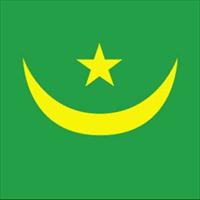MAURITANIA: Overview of pressures leading to military coup

Straddling Arab and sub-Saharan Africa, the desert nation of Mauritania has had two changes of government in three months, ending in a military coup earlier this week. Ex-presidential guard leaders have formed a military council, which they say has assumed power.
President Sidi Ould Cheikh Abdallahi remains in detention as of Friday, and a military blackout of state media continues.
Soldiers detained the president on Wednesday, only hours after he tried to dismiss his top four personal military guards.
Members of the League of Arab States and the African Union are scheduled to meet with coup leader Mohamed Ould Abdel Aziz on Friday. The United Nations, among others, have asked for Abdallahi’s immediate release.
The United States announced on Thursday it will cut off more than US $15 million in non-humanitarian aid, while the European Union has said the coup threatens its recently-approved more than US $200 million in assistance, pledged over the next five years.
Mauritania’s three million inhabitants are concentrated in the capital, Nouakchott, and in villages and nomadic tent communities scattered throughout the desert.
Despite significant mineral deposits that form more than half of the country’s exports, and recent small-scale oil operations, employed Mauritanians, on average, earned about two dollars a day in 2006, according to the World Bank.
Mauritania ranked 137 out of 177 in the United Nation’s latest ranking of living conditions around the world, which measures life span, access to education and spending power.
Political feuding
This week’s military coup came after a May government reshuffle that appointed new government ministers, many of whom had served under the iron-fisted Maaouya Ould Taya during his 21-year rule; a July no-confidence vote against the two-month old government, which then resigned; an ensuing threat by the president to dissolve the National Assembly if the no-confidence vote was upheld, and the resignation of 48 ruling party deputies earlier this week.
Coup leader Aziz had also led the 2005 coup that deposed Ould Taya, accused of ordering violent crackdowns against his opponents.
Mauritania’s 2007 election that brought Abdallahi to power was widely praised as a democratic page turner that ended more than two decades of brutal authoritarian rule, and two years of transitional military rule.
Election observer Limam Mohamed Cheikh says the military was instrumental in electing Abdallahi and most of the lawmakers. Cheikh says the military has, until the president’s attempt to dismiss its top leaders on Wednesday, exercised unchallenged control of Mauritanian politics.
Pressures and protest mount
Dissident ruling coalition party members from the National Party for the Defense of Democracy recently tried to organise a parliament session to create a commission to investigate the country's response to the rising cost of living.
Like many of its arid desert neighbours, Mauritania faces rising food and fuel prices, and shrinking cultivable land due to drought and flooding, and harmful farming techniques.
According to the U.S-based famine monitoring group, FEWSNET, in recent good-harvest years, Mauritania still imported about 70% of its food.
Flooding last year displaced thousands, wiped out crops and killed livestock. In addition, rising global food and fuel prices led the U.N. World Food Program to predict last March a year of record hunger across Mauritania.
After only seven months in power, Abdallahi’s government—the first to come to power in free and fair elections since independence in 1960— faced food riots last November.
The prime minister’s office issued a statement accusing the opposition of orchestrating riots in the south.
One month later in January, the first wave of refugees started returning to Mauritania.
Tens of thousands of mostly black Mauritanians fled border fighting, and a brutal army crackdown in 1989, most settling in tent communities in Senegalese border towns, and in Mali.
Abdallahi’s government has promised to strengthen health and education services to absorb the more than 30,000 expected to return. Approximately 4,000 have returned, thus far.
Security
Tourism has dropped off after a string of recent alleged terrorist attacks, which included last December’s murder of four tourists and an attack earlier this year on a nightclub near the Israeli embassy.
Mauritania is one of only three Arab states to maintain diplomatic relations with Israel.
Critics have recently become more outspoken about how President Abdallahi has handled these attacks.
Citing security concerns, authorities cancelled the annual Lisbon-Dakar race car rally last January, which the director of Mauritania’s tourism industry, Cissé Mint Cheikh Ould Beide, estimates cost the country almost US $5 million in lost revenue.
Less than two weeks after the 2007 democratically-elected government took office, the country had its largest drug bust to date. Police found more than US $100 million worth of cocaine 1 May abandoned at an airport in the port town of Nouadhibou.
Sid'Ahmed Ould Taya, Mauritania’s police representative of the Lyons-based international crime fighting organization, INTERPOL, was arrested as a part of the investigation.
West Africa’s U.N. Office of Drugs and Crime has said that drug money can easily infiltrate corridors of power in West Africa, with its poorly paid security forces, lack of equipment to patrol long borders, and weak justice systems.
 Back and Next - Back and Next
Back and Next - Back and Next See Also - See Also
See Also - See Also